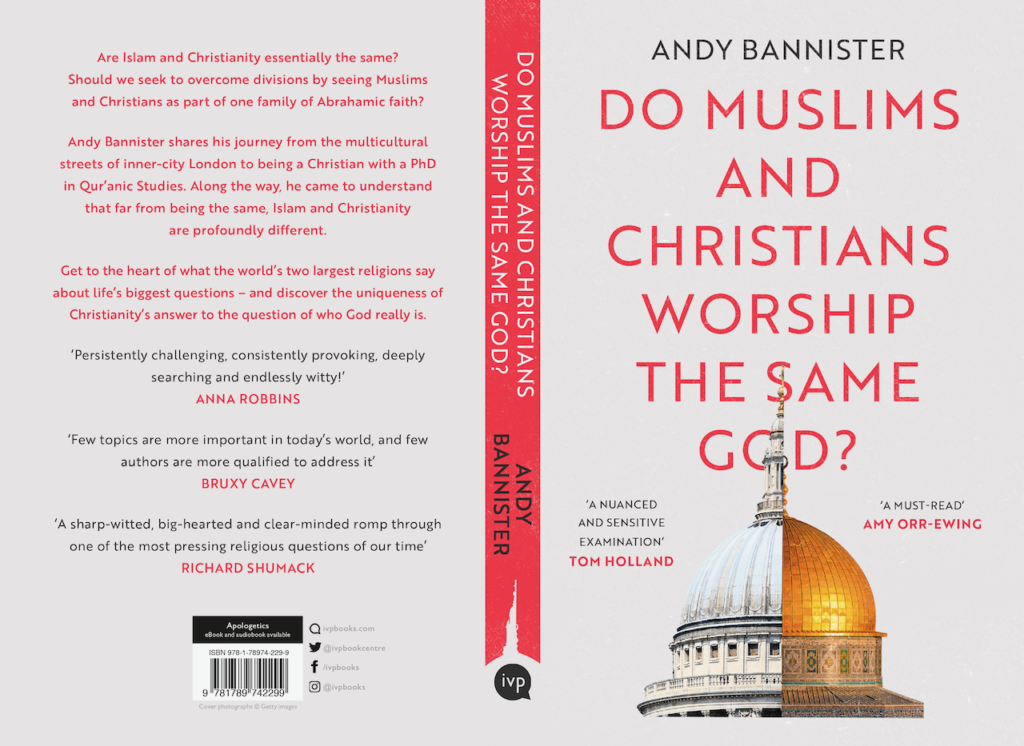In this edition of Frontlines, Dr Stephen Jones spoke to Gavin Matthews for Solas about his work teaching Chemistry in a Perth Secondary school – and the way his Christian faith affects his work. He also talks about how he tries to be a helpful, wise, Christian witness in his school community.
Solas: Welcome Stephen, – tell us your job title, and what your roles and responsibilities are.
SJ: Hi! I’m a chemistry teacher delivering Scottish ‘National 5’ and ‘Higher’ Chemistry to fourth and fifth years, and the general science curriculum to first, second and third years, as well as some maths too. I am also dipping my toe into some guidance teaching, and do that for one period a week.
Additionally, I’m involved in other aspects of school life such as inter-house activities and some of the charity fundraising. The school has long been involved with the Teenage Cancer Trust, who I used to work for (and there have sadly been a few young people in our school diagnosed with cancer); so they were very happy for me to keep that going.
Solas: So, of all those things, what do you enjoy most? What gives you job satisfaction?
SJ: I like working with young people, whether it’s teaching them Higher Chemistry, showing first-years how to use microscopes, helping with the Scripture Union group in the school, or the charity-fundraising. A lot of teaching is planning and admin, and I only endure that so that I can do the face-to-face work! We’ve discussed this very question in the staffroom and most teachers like standing in front of a class and communicating. I was in school today and taught seven periods of Chemistry – but I love it, and I know what I’m talking about. For me the challenge is to make the learning experience enjoyable for the pupils, because we all learn more when it’s fun.
Solas: Teaching is challenging, difficult job at times; one that can be quite intense with pressures to perform. Tell us about some of the challenges you face, and also how your Christian faith helps you to navigate those?
SJ: I think one of the first challenges for a teacher is that perfectionism is actually unattainable all the time. I could literally spend all my time perfecting lessons and presentations and have no space for my family, fitness, or mental health. I have been steadily generating my own teaching materials which are as I would want them to be – but last week I taught a class using someone else’s materials. The science was sound but the slides weren’t exactly as I would want them (one image still had a copyright notice across it!!) but I have to keep a balance. I see hundreds of students a week at school – but I also have three kids of my own at home who deserve my time. So, I’m continually learning and improving – and entering teaching a little later in life than most probably helped with that. My faith and family helped me to maintain a sustainable balance too.
It also really helps as a Christian to know who you are in God. Because when you are a teacher you get insults hurled at you and if you don’t have security in your identity some of those can stick. But because I know that I am a child of God, made in the image of God, and loved by God and have a sense of security I have in who I am – folks can say what they want, but I know who I am. That sense of knowing who I am is actually how I maintain my authority in the classroom, and my faith really helps with that.
Solas: So how does your Christian faith affect the way you approach your work?
SJ: I like pretty much like all of my pupils, even the ones who people find difficult to like. But I had one pupil who was being a complete nightmare – making alarm sounds and shouting crudely offensive things at me in the school. I remember praying about how I would respond to this abuse. This young person needed boundaries – but also needed someone to view them with compassion and see how broken they are. I prayed about how to respond, and a Christian song came into my head, “Reckless Love” which is about Jesus’ relentless compassion for the lost. It reminded me that God values that young person – which affects how I must treat them. So, when young people’s behaviour is “challenging”; knowing that we serve a God of second chances, who looks on young people and loves them as His own creation, frames how I behave as a teacher. And love means compassion and forgiveness and boundaries and consequences too. I want my classroom to be a place of multiple second-chances, where I am an approachable teacher while at the same time there are rules, not chaos.
Solas: So presumably folks at work know that you are a Christian. What kind of responses has that produced?
SJ: Well sometimes from both pupils and staff there is a bit of confusion that a “science teacher” is a Christian! The assumed position in our culture is that science and Christianity don’t go together. And it’s not my position as a teacher to force my beliefs on anybody, but when we talk about how finely tuned our universe is for the emergence of life I can explore what the alternatives are and present the different views to the young people with no bias. I might say, “I believe this – but whatever you believe, isn’t the universe incredible!”
The other thing is I have never met a Christian as boring as the stereotype that we are all supposed to be! That and ridiculously judgemental… And I hope that I counter that stereotype. I hope that the staff that I know well don’t see me as that stereotype-Christian. Jesus said that he came to give us life in ‘all its fullness’. And I believe that I will get the most from life if I live it according to the maker’s instructions. In fact, the things in my life that have gone most wrong have tended to come from when I haven’t done that. My faith gives me a sense of purpose, and I want to model this ‘life to the full’ to everyone I work with; that I love God, I love my life, I love my faith and my family and what I do. I think the more teachers we have who love what they do, they better it is for the kids! As a chemistry teacher I get to blow stuff up and set things on fire on a regular basis, while marvelling at what’s happening at a molecular level, whilst looking like a magician – but that’s just the perks of the job!
Solas: So has all that ever led to opportunities to talk about your faith with people who you’ve met through work? Is talking about your faith something you deliberately set out to do, or does it come up spontaneously?
SJ: When I was a student I used to answer the question, “What did you do at the weekend?” with all the things I’d done on Saturday with the express purpose of dodging talking about church! But I remember feeling convicted about that and thinking, ‘my faith should be headline news!’ so I don’t hide my faith anymore. But honestly, what I know of Christ is so exciting that I do want to tell people about it and what’s happening in our church. So this week, my daughter and I went into Tesco’s and bought 198 chocolate Easter Eggs, that our church are delivering to young people in our community. It caused a bit of a stir in the shop when we had the pallet of eggs brought out too. So when someone at work says “were you doing anything exciting at the weekend?” I’ve got this great story of clearing out Tesco’s of Easter Eggs – then immediately their next question is, “Why would your church do that?” so I can talk about Easter being a time of hope, and the little booklet we give out with the eggs, about finding real hope. So even just by telling that story I have a chance to share a little of the hope I have in Jesus in a fun, friendly and hope-filled way.
Sometimes I’m, aware of colleagues who are struggling. It’s not always appropriate to offer to directly pray for people in school – but there have been times when colleagues are aware that I pray for them and they are appreciative. There is a small group of Christian teachers who meet to pray on a Wednesday lunchtime and we’re really open about saying ‘how are you? – we were praying for you on Wednesday’. Sometimes this leads to deeper conversations, deeper friendships and lets everyone know that I’m open to these conversations if people want to chat.
Solas: And what have reactions to you sharing your faith been like?
SJ: Maybe people talk about me behind my back! But in school most people are deliberately polite and avoid conflict. I think we have enough battles in the classroom, we don’t need any more in the staffroom! So the most common response is a respectful acknowledgement that those are my beliefs – but not theirs. I don’t ever force my beliefs on anybody – but neither would I want to shy away from sharing what I believe when the subject comes up.
I care about my colleagues enough that I want them to know that I am there for them, and that they have the same opportunity to access faith that I do and that I’d be happy to talk to them about it. Genuine relationships are so important. The deeper your relationship with someone, the more they have reason to trust what you say and the more opportunities they give you to share it. So in school I try to live as a Christian in a completely unashamed way – warts and all – and everyone can see who I am and what I stand for.
Solas: What’s your motivation for wanting to share Jesus with others?
SJ: I love being a Christian – that’s how I live life to the full according to God’s instructions. Logically it makes sense, even though there are things in the Bible that trip me up… as a young scientist I read the Old Testament alongside Richard Dawkins’ “The God Delusion” which threw up lots of issues. And there are debates to be had around a whole range of secondary issues but my foundation is in Christ. And the more I have explored my faith, the more I find belief in a creator God a logical position. I’m not sure that life would have any purpose without God. So I want to share my faith because of that sense of meaning and purpose which shapes my sense of wellbeing as a human – knowing that God has a purpose for me, and who will hold on to me as we navigate His plan. God says, ‘never will I leave you or forsake you’, so I can hold on to God and He guides me through life’s struggles and uncertainties. I can’t imagine living life without being able to turn to God in prayer… and so my experience of faith has been so good that I want other people to have access to that too, and to experience God as a friend and as a saviour.
Solas: What advice would you give a young Christian going into teaching who wants to be faithful to Christ there?
SJ: I think that you need to be wise about how you represent your faith in public education. My pastor in Glasgow used to say, “keep the main thing, the main thing” and the main thing is Jesus. He’s who I want to talk about, his love, his death and resurrection; and his forgiveness. I don’t want to get side tracked into all kinds of other disputes and debates that are less important. The other thing is learning to pick the right battles. There may be things in the school that I disagree with sometimes – but I am not in senior leadership so it’s not my position to go around challenging everything that happens, it’s literally above my pay grade, for a reason! But also when I do need to take an issue on, I haven’t burnt all my bridges with people whose help I need. I have a great relationship with the senior management in my school, and they allow me to do things like a huge school fundraising run for the Teenage Cancer Trust; which a local church sponsored. They let me host the SU group meet in my classroom, and they have allowed me to advertise the SU Ski and Snowboard Holiday I organise at the school assemblies. It was clearly a Christian event, and advertised as such, but still some kids with no church connection signed up. I feel that I was only able to do that because I have good relationships with staff, act wisely and choose my battles.
Solas: Thanks Stephen – that’s insightful!











